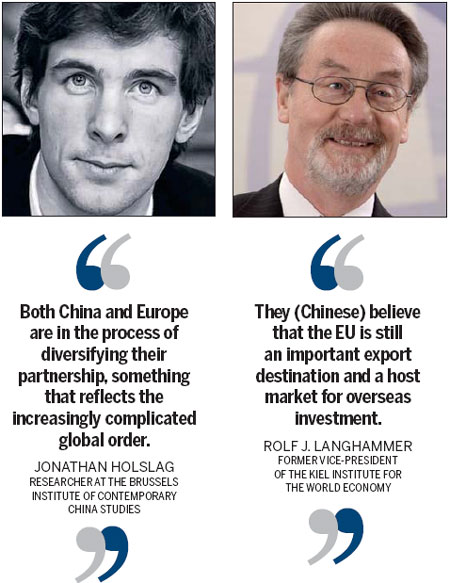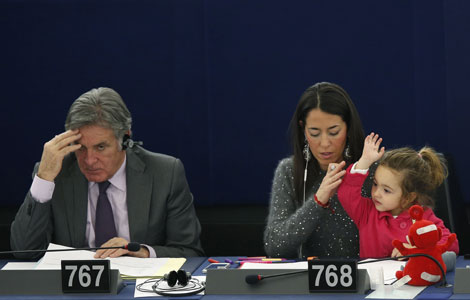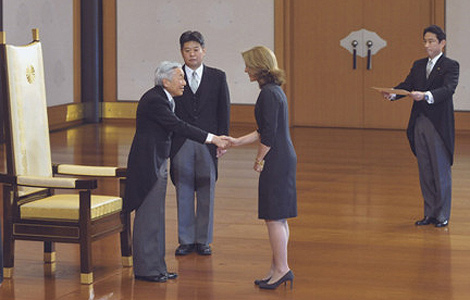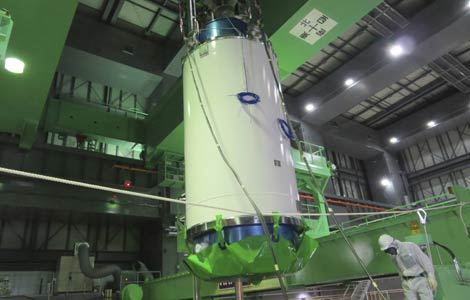

Investment stakes
In spite of these hassles, both investment and trade had grown manifold during the past decade. Even during the recession years (2009-12), the number of Chinese companies that had invested in Europe more than doubled to 8,000. More than 50 percent of these companies ended up with heavy losses.
At the same time, statistics have also shown that more than 80 percent of the European companies investing in China have seen their profits grow steadily. That also explains the robust growth in European companies investing in China.
Andreas Frahm, the chief sales officer of German medical equipment maker Draeger, admits that China has indeed been a sweet spot for the multinational company during the past decade. "China is already the largest market for Draeger in some product and application fields," Frahm says.

According to Frahm, though there are several attributes for success, it is high retention rate of local talent, their deep commitment and the close linkages within China that have really made the difference.
Frahm admits that during the last few years, demand for the German company's products have surged in China. "There is a continuous and growing demand for affordable products and solutions in the medium and upper basic segment markets of China. We anticipate these sectors to clock even higher growth rates going forward."
Frahm also believes that growing economic interaction between the EU and China are important as it provides a legal framework to the investment activities and a solid platform for future projects.
Dewit says both economies have benefited from the growth in bilateral trade relations during the past few years. "Chinese and EU authorities should take more steps to promote these interactions. Culture is another aspect that will play an important role in the future as both sides need to understand each other better," he says.
Dewit admits that Europe needs to brush up on its knowledge of Chinese language and culture, while European institutions must do more to promote European culture in China.
"Both sides have to do their best to avoid misunderstandings based on ignorance or false perceptions," he says.
Rolf J. Langhammer, former vice-president of the Germany-based Kiel Institute for the World Economy, says the summit is an important milestone for settling bilateral trade policy tensions, such as anti-dumping issues, and for coordinating positions at the upcoming Bali round of global trade negotiations.
According to Langhammer, China still believes that the EU has a long way to go until a full economic recovery. "They (Chinese) believe that the EU is still an important export destination and a host market for overseas investment."
China also perceives the EU to be the more responsive partner in the TTIP (Transatlantic Trade and Investment Partnership) than the US.
"This also means that, China expects the EU to consider the interests of third parties in the TTIP negotiations more seriously than the US," Langhammer says.
In return, Langhammer says the EU might hope that after the recent visits by Chinese leaders to Southeast Asia, China will accept an "anchor country" role in the region by responsibly integrating the interests of neighbors in its overall economic and foreign policy.
"Furthermore, the EU is also expected to lend support to the gradual internationalization of the renminbi," Langhammer says.
Though both sides will launch investment negotiations, Langhammer expects progress only if both sides agree to a timetable and fixed set of procedures. "It is imperative that this issue is solved, before we move ahead" he says.
Former parliamentarian Ford expects both sides to begin negotiations during the summit. "But the process will be long and protracted with demands on market access from the European Commission and from the European Parliament," he says.
Ford warns that the granting of Market Economy Status to China in 2016 is far from automatic, as the European Parliament, with its long- running antipathy toward China, needs to approve it.
"China needs to go on the offensive in Europe to prepare the ground in advance, rather than the current policy of crisis management," Ford says. "China needs a policy of political prevention rather than cure."
Li Xiaofei contributed to the story.
fujing@chinadaily.com.cn







